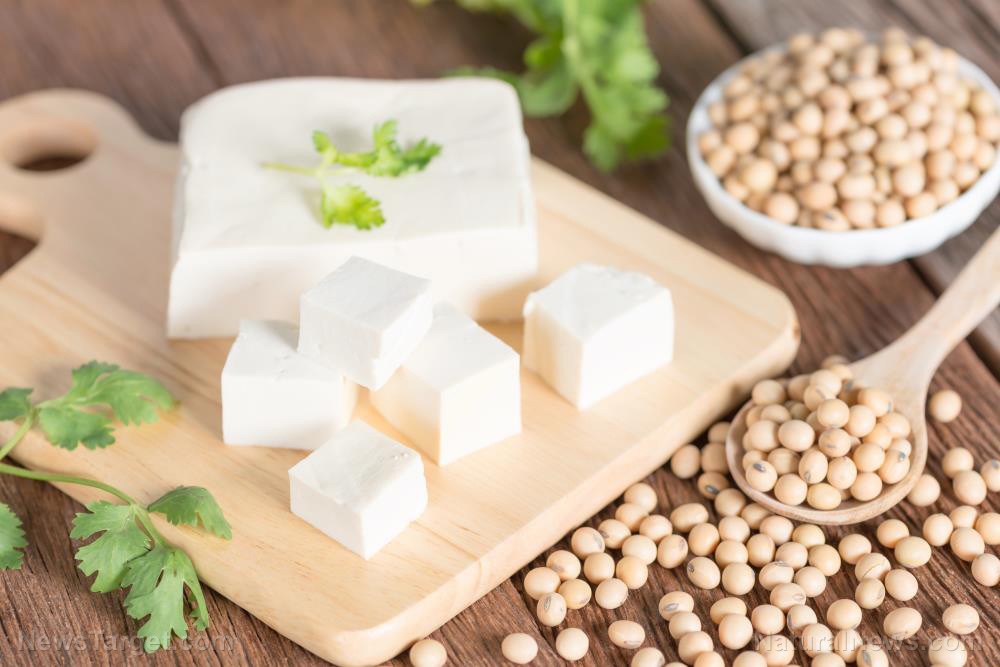Best Probiotic for Gut Health: A Comprehensive Guide
When it comes to maintaining a healthy gut, probiotics play a crucial role in promoting good digestion, boosting the immune system, and improving overall well-being. Finding the best probiotic for gut health may involve choosing a supplement with a high CFU count and a diverse range of probiotic strains to support a healthy gut microbiome. In this article, we will explore the best probiotics for gut health and how you can incorporate them into your daily routine.
Probiotics are live bacteria and yeasts that are good for your health, especially your digestive system. They are often referred to as ‘good’ or ‘friendly’ bacteria because they help keep your gut healthy. In recent years, the popularity of probiotics has soared as more people become aware of the benefits they offer.
What are Probiotics?
Probiotics are live microorganisms that provide health benefits when consumed in adequate amounts. They are often found in fermented foods like yogurt, kefir, and sauerkraut. Some common probiotic strains include Lactobacillus, Bifidobacterium, and Saccharomyces boulardii.
Probiotics work by restoring the natural balance of bacteria in the gut, known as the gut microbiota. This balance is essential for good digestion, nutrient absorption, and overall gut health. Probiotics can also help strengthen the immune system and prevent the growth of harmful bacteria in the gut.
In addition to fermented foods, probiotics are also available in the form of supplements. These supplements contain specific strains of beneficial bacteria that can help improve gut health. It’s essential to choose a high-quality probiotic supplement with a high number of colony-forming units (CFUs) for maximum effectiveness.

Importance of Best Probiotic for Gut Health
The gut, also known as the gastrointestinal tract, is a complex system responsible for digesting food, absorbing nutrients, and eliminating waste from the body. A healthy gut is essential for overall well-being and plays a crucial role in maintaining optimal health.
The gut is home to trillions of bacteria, both good and bad, that make up the gut microbiome. These bacteria help with digestion, produce essential nutrients, and support the immune system. An imbalance in the gut microbiome, known as dysbiosis, can lead to various health issues such as bloating, gas, indigestion, and inflammation.
Improving and maintaining gut health is important for several reasons:
- Digestion: A healthy gut helps break down food and absorb nutrients efficiently, preventing digestive issues like constipation, diarrhea, and bloating.
- Immune function: The gut is closely linked to the immune system, with about 70% of the body’s immune cells located in the gut. A healthy gut microbiome helps protect against infections and illnesses.
- Mental health: The gut-brain connection, also known as the gut-brain axis, influences mood, behavior, and cognitive function. A healthy gut can positively impact mental well-being.
- Inflammation: An imbalanced gut microbiome can lead to chronic inflammation, which is linked to various diseases such as obesity, heart disease, and autoimmune disorders.
Overall, maintaining a healthy gut is essential for overall health and well-being. Incorporating probiotics, fiber-rich foods, and a balanced diet can help support gut health and promote optimal functioning of the gastrointestinal system.
Factors Affecting Gut Health
Several factors can influence gut health and the balance of the gut microbiome:
- Diet: A diet high in processed foods, sugar, and unhealthy fats can disrupt the balance of good and bad bacteria in the gut. Eating a diverse range of whole foods, fiber-rich fruits and vegetables, and fermented foods can promote a healthy gut microbiome.
- Stress: Chronic stress can negatively impact gut health by altering the gut-brain axis and increasing inflammation in the gut. Practicing stress-reducing techniques such as meditation, yoga, and deep breathing exercises can help support gut health.
- Medications: Certain medications, such as antibiotics, can disrupt the natural balance of bacteria in the gut. It’s essential to use antibiotics judiciously and consider probiotic supplementation to restore gut health.
- Infections: Bacterial, viral, or parasitic infections can disrupt gut health and lead to digestive issues. Proper hygiene practices and seeking treatment for infections can help maintain a healthy gut.
- Lifestyle factors: Lack of exercise, inadequate sleep, and excessive alcohol consumption can all impact gut health. Making positive lifestyle changes, such as staying active, getting enough sleep, and limiting alcohol intake, can support gut health.
Benefits of Probiotics for Gut Health
Probiotics offer numerous benefits for gut health and overall well-being. Some of the key advantages of probiotics include:
- Improved digestion: Probiotics help maintain a healthy balance of bacteria in the gut, which can enhance digestion and nutrient absorption. They can also alleviate symptoms of digestive issues like bloating, gas, and diarrhea.
- Boosted immune system: The gut is closely connected to the immune system, and a healthy gut microbiome can help strengthen the immune response and defend against infections and illnesses.
- Reduced inflammation: Probiotics have anti-inflammatory properties that can help reduce chronic inflammation in the gut and lower the risk of inflammatory conditions.
- Better mental health: The gut-brain axis influences mood, behavior, and cognitive function, and probiotics can support mental well-being by promoting a healthy gut microbiome.
- Enhanced nutrient absorption: Probiotics can improve the absorption of essential nutrients like vitamins and minerals, ensuring optimal nutrient uptake for overall health.
Incorporating probiotics into your daily routine through foods like yogurt, kefir, and sauerkraut or supplements can help support gut health and promote these beneficial effects.

Types of Probiotics
There are various types of probiotics available, each with distinct health benefits. Some common probiotic strains include:
- Lactobacillus: This genus of bacteria includes several species, such as Lactobacillus acidophilus and Lactobacillus rhamnosus, known for their ability to support digestive health and boost immunity.
- Bifidobacterium: Another common genus of probiotic bacteria, Bifidobacterium strains like Bifidobacterium lactis and Bifidobacterium bifidum help maintain gut health and support the immune system.
- Saccharomyces boulardii: This yeast-based probiotic strain is known for its ability to alleviate digestive issues like diarrhea and support gut health.
- Streptococcus thermophilus: This probiotic strain helps with lactose digestion and may improve symptoms of lactose intolerance.
- Lactobacillus plantarum: Known for its antioxidant properties and ability to support gastrointestinal health, Lactobacillus plantarum is a versatile probiotic strain.
Choosing the Best Probiotic
When selecting a probiotic supplement, there are several factors to consider to ensure you choose the best option for your needs:
- Strain diversity: Look for a probiotic supplement that contains a diverse range of probiotic strains to promote a healthy gut microbiome.
- Colony-forming units (CFUs): Check the CFU count on the supplement label, as higher CFU counts indicate a more potent and effective probiotic supplement.
- Scientific evidence: Choose probiotic supplements that have been clinically studied and have scientific evidence supporting their efficacy for gut health.
- Quality and purity: Opt for a high-quality probiotic supplement that is free from additives, preservatives, and allergens to ensure purity and effectiveness.
- Customer reviews: Consider reading customer reviews and testimonials to get an idea of the effectiveness and quality of the probiotic supplement.
By choosing a high-quality probiotic supplement that meets these criteria, you can support gut health, improve digestion, and boost overall well-being. Incorporating probiotics into your daily routine can help maintain a healthy gut microbiome and promote optimal gut health.
Top Probiotics for Gut Health
Several probiotic strains have been studied for their effectiveness in supporting gut health. Some of the top probiotics for gut health include:
- Lactobacillus acidophilus: This probiotic strain is widely studied for its ability to promote digestive health, support immune function, and alleviate symptoms of gastrointestinal issues like diarrhea and irritable bowel syndrome (IBS).
- Bifidobacterium lactis: Known for its ability to support gut health, Bifidobacterium lactis can help reduce inflammation, improve digestion, and boost immune function.
- Lactobacillus rhamnosus: This probiotic strain has been shown to alleviate symptoms of digestive issues like bloating, gas, and constipation, as well as support a healthy gut microbiome.
- Saccharomyces boulardii: A yeast-based probiotic, Saccharomyces boulardii is effective in treating diarrhea, particularly antibiotic-associated diarrhea, and supporting overall gut health.
- Bifidobacterium bifidum: This probiotic strain can help balance the gut microbiome, support immune function, and reduce inflammation in the gut.
These probiotic strains can be found in various probiotic supplements and fermented foods like yogurt, kefir, and kimchi.
How to Incorporate Probiotics into Your Diet
There are several ways to incorporate probiotics into your diet to support gut health:
- Eat probiotic-rich foods: Include fermented foods like yogurt, kefir, sauerkraut, kimchi, and miso in your diet to naturally introduce probiotics into your gut.
- Take a probiotic supplement: Consider taking a high-quality probiotic supplement with a diverse range of probiotic strains and a high CFU count to support gut health.
- Drink kombucha: Kombucha is a fermented tea beverage that contains probiotic bacteria and can be a tasty and refreshing way to add probiotics to your diet.
- Try kefir: Kefir is a fermented milk product similar to yogurt but with a more liquid consistency. It contains a variety of probiotic strains and can be enjoyed on its own or added to smoothies.
- Include fermented vegetables: Fermented vegetables like pickles, kimchi, and sauerkraut are rich in probiotics and can be added to salads, sandwiches, or enjoyed as a side dish.
Incorporating these probiotic-rich foods and supplements into your daily diet can help maintain a healthy gut microbiome and support overall gut health.

Precautions when Taking Probiotics
While probiotics are generally safe for most people, there are some precautions to keep in mind when taking probiotic supplements:
- Start slowly: When introducing probiotics into your diet, start with a low dose and gradually increase to prevent digestive discomfort like bloating, gas, and diarrhea.
- Consult a healthcare professional: If you have a medical condition or are taking medications, consult your healthcare provider before starting a probiotic supplement to ensure it is safe and appropriate for you.
- Choose the right strain: Different probiotic strains have unique benefits, so choose a probiotic supplement that matches your specific health goals and needs.
- Store properly: Store probiotic supplements according to the manufacturer’s instructions to maintain their potency and effectiveness.
- Monitor for adverse reactions: If you experience any unexpected symptoms like severe bloating, abdominal pain, or allergic reactions, stop taking the probiotic supplement and consult a healthcare provider.
Probiotics for Specific Gut Health Issues
Probiotics have been studied for their effectiveness in managing and alleviating various gut health issues. Here are some specific gut health issues and the probiotic strains that may be beneficial for addressing them:
- Irritable bowel syndrome (IBS): Certain probiotic strains, such as Lactobacillus plantarum, Bifidobacterium lactis, and Saccharomyces boulardii, have been shown to help reduce symptoms of IBS, including abdominal pain, bloating, and changes in bowel habits.
- Inflammatory bowel disease (IBD): Probiotics like Lactobacillus rhamnosus and Bifidobacterium breve have been studied for their anti-inflammatory properties and potential benefits in managing symptoms of IBD, including Crohn’s disease and ulcerative colitis.
- Antibiotic-associated diarrhea: Saccharomyces boulardii and Lactobacillus rhamnosus are commonly recommended probiotic strains to help prevent and treat diarrhea caused by antibiotic use by restoring the balance of gut bacteria.
- Constipation: Bifidobacterium lactis, Lactobacillus casei, and Lactobacillus plantarum are probiotic strains that may help promote regular bowel movements and alleviate symptoms of constipation.
- Gastrointestinal infections: Probiotics like Lactobacillus acidophilus and Bifidobacterium bifidum have been studied for their ability to support the immune system and help prevent and reduce the severity of gastrointestinal infections.
When choosing probiotics for specific gut health issues, it’s essential to consult with a healthcare provider or a registered dietitian to determine the most appropriate probiotic strains, dosages, and duration of supplementation for your individual needs.
Probiotics for Children
Probiotics can be beneficial for children’s gut health and overall well-being. Some considerations when choosing probiotics for children include:
- Selecting age-appropriate probiotics: Different probiotic strains and formulations may be more suitable for children of different ages. Choose a probiotic supplement specifically designed for infants, toddlers, or older children to ensure safety and effectiveness.
- Choosing child-friendly formulations: Look for probiotic supplements in easy-to-administer forms like powder, chewable tablets, or gummies that are palatable for children.
- Consulting with a pediatric healthcare provider: Before giving probiotics to children, especially infants and young children, consult with a pediatrician or healthcare provider to ensure they are safe and appropriate for your child’s individual health needs.
- Considering specific health concerns: Some probiotic strains, such as Lactobacillus rhamnosus GG and Bifidobacterium lactis BB-12, have been studied for their benefits in children with conditions like colic, eczema, allergies, and digestive issues.
- Monitoring for any adverse reactions: Keep an eye out for any changes in your child’s digestion, bowel habits, or overall well-being when starting probiotics. Discontinue use and consult a healthcare provider if your child experiences any adverse reactions.
Probiotics for Seniors
As individuals age, maintaining gut health becomes increasingly important for overall well-being. Probiotics can play a significant role in supporting senior’s gut health and addressing age-related digestive issues. Here are some considerations for using probiotics for seniors:
- Age-related changes: Aging can lead to changes in the gut microbiome, including a decrease in beneficial bacteria and an increase in harmful bacteria. Probiotics can help replenish and maintain a healthy balance of gut bacteria in seniors.
- Immune support: Probiotics have been shown to support immune function, which can be beneficial for seniors as their immune systems may weaken with age.
- Digestive health: Probiotics can help improve digestion, alleviate symptoms of gastrointestinal issues like constipation and bloating, and support nutrient absorption in seniors.
- Bone health: Some probiotic strains have been associated with improved bone density and absorption of calcium and other essential minerals, which can be beneficial for seniors at risk of osteoporosis.
- Cognitive health: The gut-brain connection suggests that probiotics may have a positive impact on cognitive function and mental well-being in seniors.
When choosing probiotics for seniors, consider selecting a high-quality supplement with probiotic strains that are beneficial for age-related health concerns. It’s essential to consult with a healthcare provider or a registered dietitian to determine the most appropriate probiotic strains, dosages, and formulations for seniors’ individual needs.
Conclusion
In conclusion, probiotics offer numerous benefits for gut health and overall well-being across different age groups. From supporting digestion and nutrient absorption to boosting the immune system and promoting mental health, probiotics play a crucial role in maintaining a healthy gut microbiome.
Whether you are looking to address specific gut health issues, support children’s digestive health, or promote gut health in seniors, incorporating probiotics into your daily routine can have a profound impact on your health and well-being.
By choosing the right probiotic strains, incorporating probiotic-rich foods and supplements into your diet, and taking necessary precautions, you can support gut health, improve digestion, and enhance overall wellness at any stage of life. Remember to consult with a healthcare provider or a registered dietitian before starting probiotics, especially if you have specific health concerns or medical conditions.
Prioritizing gut health through the use of probiotics can lead to a healthier digestive system, stronger immune function, and improved overall quality of life. Incorporate probiotics into your daily routine to enjoy the numerous benefits they offer for your gut health and well-being.
Also Read:
The Ultimate Guide to Glowing Skin: Tips and Tricks



